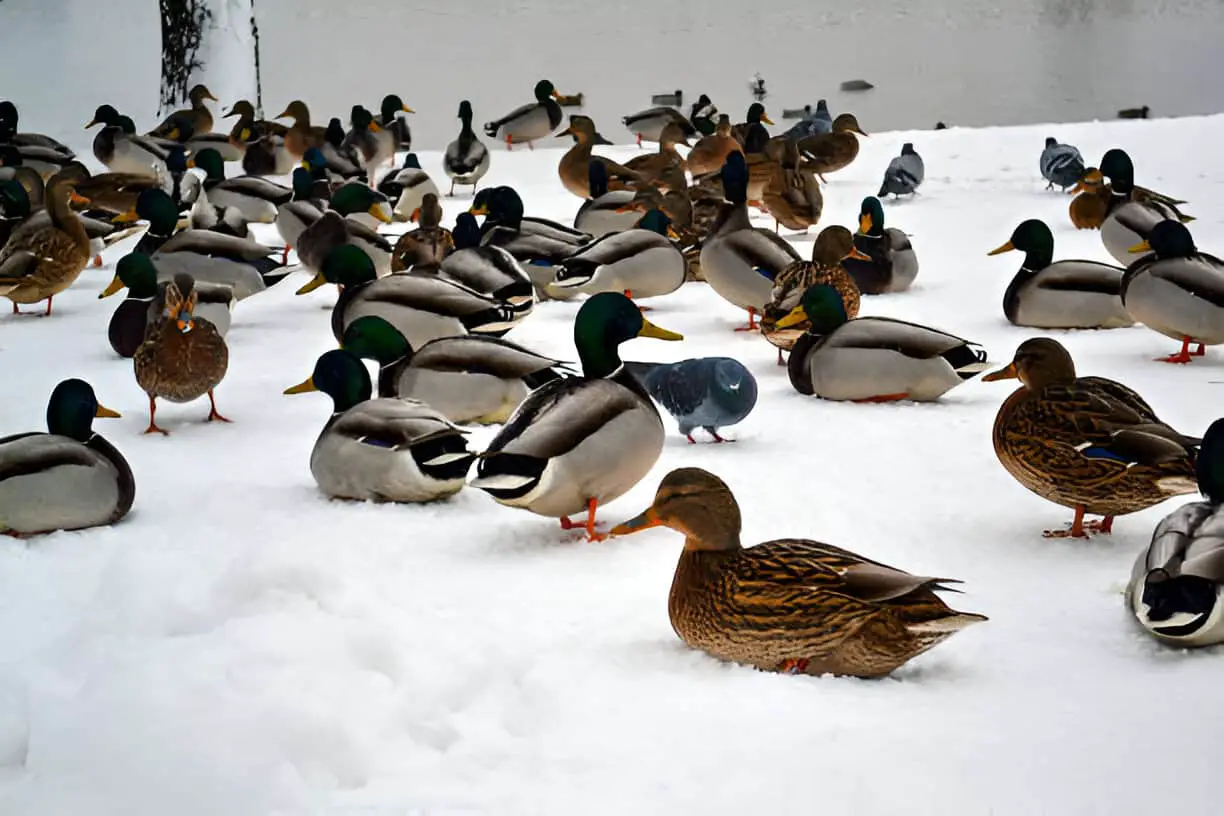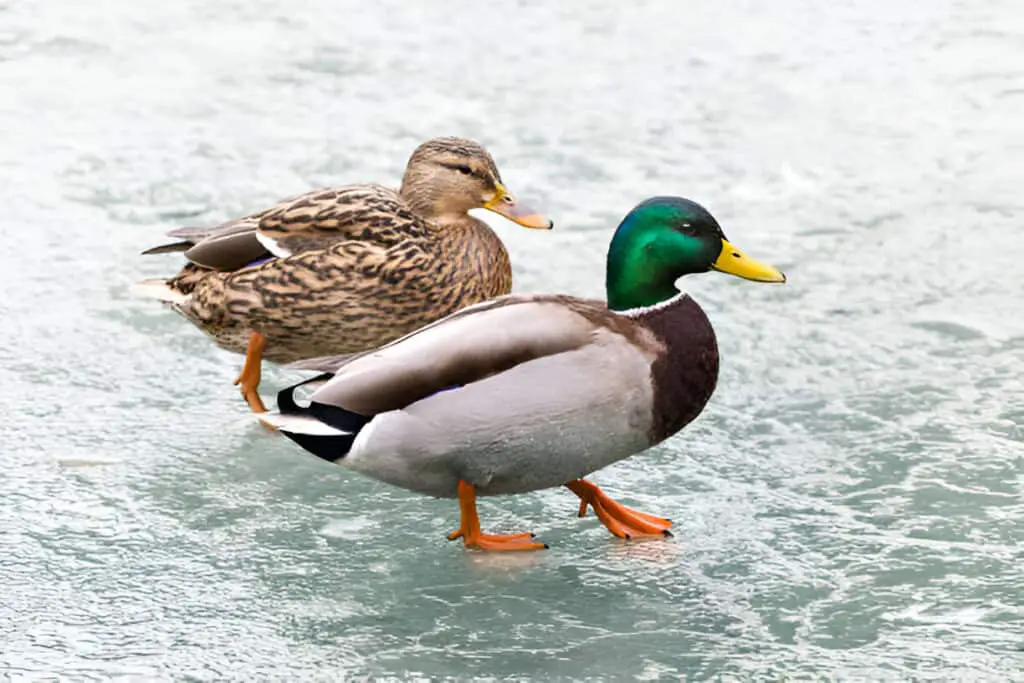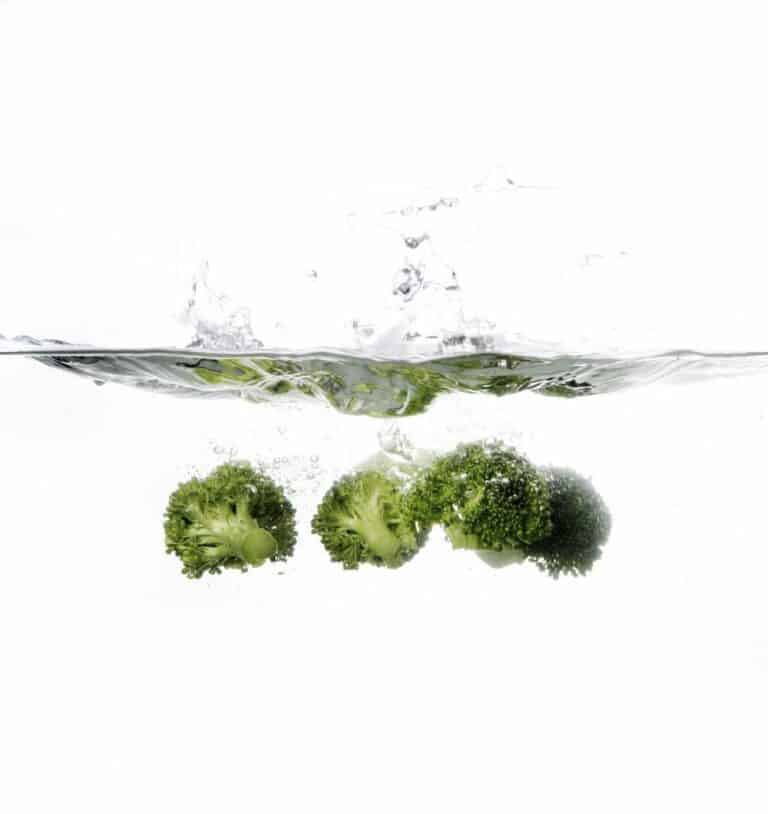Do Ducks Need Shelter in the Winter? Here’s What You Need to Know

As a duck owner, there’s nothing more important than making sure your feathered friends stay healthy and happy, no matter the season. While ducks are tough little creatures, winter can still pose a challenge if they don’t have the right setup. You might be wondering, “Do ducks really need shelter in the winter?” Well, the short answer is yes, but let me walk you through why and how you can make sure your ducks thrive during the cold months.
Why Winter Shelter Is Essential for Ducks
Ducks are hardy animals, and many breeds are built to handle colder temperatures than we give them credit for. However, just because they can tolerate the chill doesn’t mean they won’t benefit from a little extra protection. The main reason ducks need shelter in winter is to shield them from extreme weather, including snow, rain, and frigid winds. These elements can be tough on ducks, especially when they affect their access to food and water.
When winter hits, the ground becomes wet and icy, and their usual foraging grounds may become inaccessible. Without shelter, ducks can suffer from hypothermia, frostbite, and even sickness due to prolonged exposure to wet and cold conditions. In short, shelter is a vital part of their winter survival strategy.
How Cold Is Too Cold for Ducks?

Ducks are far more resilient than we often give them credit for. Most domestic duck breeds can handle temperatures as low as 20°F (-6°C) as long as they have proper shelter and access to food and water. But once the temperature drops lower than that, or if the weather is accompanied by wind, rain, or snow, ducks will definitely appreciate some protection.
Cold, damp conditions can lead to things like frostbite on their feet and bills, and prolonged exposure can cause serious health issues. Keeping them in a dry, draft-free area ensures that they’re able to maintain their body heat. It also gives them a place to retreat and rest when they need to.
Key Elements of a Winter Duck Shelter
When setting up shelter for your ducks in the winter, think of it as creating a cozy home where they can escape from the harsh elements. Let’s break down what’s necessary to keep your ducks warm and safe:
1. A Dry, Well-Ventilated Coop
Ducks love to splash around in water, but they also need a dry place to sleep at night. Water in the coop can quickly turn into ice or mud, which can lead to frostbite or infection. A proper winter shelter needs to be waterproof and have adequate drainage to avoid puddles that could make the ground soggy.
At the same time, your shelter needs to be well-ventilated. While you want to keep the cold air out, proper airflow is key to preventing the buildup of moisture inside, which can lead to mold and respiratory issues. A balance of warmth and ventilation is crucial.
2. Bedding to Keep Ducks Warm
The bedding inside your duck shelter plays a huge role in providing warmth. Straw or wood shavings work best for insulation. These materials trap heat and keep your ducks’ feet dry. Avoid using hay, as it can become too moldy in damp conditions and may harm your ducks. Make sure to change the bedding of your duck regularly to keep it clean and fresh.
3. Space to Roam, But Not Too Much
While ducks are used to having space to roam free, during the winter months, they won’t need as much room to explore outside if the weather is harsh. Instead, focus on making sure their coop is comfortable and secure. The coop should be large enough for them to move around and stretch their wings, but not so large that they can’t huddle together for warmth.
4. Protection From the Wind
Wind chills can make the cold feel much worse, and ducks can suffer from windburn or frostbite if exposed to strong gusts. Make sure your shelter is sturdy and protected from the wind, especially at night. You can also use tarps or plastic sheeting around the coop to create a windbreak while still allowing airflow.
5. Proper Food and Water Access
Even though the weather is colder, your ducks still need access to food and fresh water. This can be tricky when everything freezes. Consider using a heated water bowl or a water heater to keep water from freezing over. Ducks will also appreciate having some extra high-energy food, like cracked corn, during the winter months to help them stay warm.
| Check out: Do Ducks Prefer Dirty Water or Should You Keep Their Pond Clean? |
The Debate: Free-Range Ducks vs. Enclosed Shelter
A common question is whether ducks can be left to roam freely during the winter months or if they should be confined to a sheltered space. While some ducks are perfectly fine to roam outdoors even in winter, the conditions need to be right.
Free Range in the Winter
If you live in an area with relatively mild winters, your ducks might be fine to roam outside, but even then, they’ll need a warm, dry place to retreat when it gets too cold. Free-range ducks should always have access to a shelter or safe place they can go to when needed.
Enclosed Shelters
For ducks living in colder climates, it’s best to keep them in a secure, enclosed shelter at night. You can still let them roam outside during the day, but they’ll need somewhere to go when the temperature drops or if there’s snow on the ground.
What About Ducks and Snow?
Many duck breeds love the snow! They’ll enjoy waddling around in it and even dabbling in the fresh powder. However, while they might seem to enjoy the snow, they still need shelter to keep them dry and warm. Just like with rain, prolonged exposure to cold, wet conditions can be harmful.
How to Prepare for Winter
Preparing for winter doesn’t have to be a daunting task. Start by inspecting your ducks’ shelter to ensure that it’s secure and draft-free. You can add insulation or tarps around the outside to make sure that the coop retains heat.
If you haven’t already, invest in a heated water bowl to ensure that your ducks always have access to fresh water. Additionally, monitor the weather conditions and regularly check on your ducks. In extreme cold, it’s especially important to ensure that their bedding is dry and warm, and that their food and water haven’t frozen over.
Where Do Wild Ducks Go in Winter in the UK?
When winter rolls in across the UK, many ducks don’t just stick around—they hit the road, or rather, the skies. Species like the Wigeon, Teal, and Pintail migrate southward to find milder climates, more open water, and reliable food sources.
But the migration isn’t just about escaping the chill. Ducks need access to unfrozen lakes and wetlands so they can continue feeding. They bulk up on grains, plants, and small aquatic life to store energy for the long journey back to their breeding grounds in spring.
Here’s where some common ducks go during UK winters:
| Duck Species | Winter Destination | Reason for Migration |
| Wigeon | Southern England, Europe | Milder climate, food |
| Teal | Western Europe, Africa | Open water, feeding zones |
| Pintail | Coastal UK, France | Avoid frozen wetlands |
So while we’re layering up, they’re flying south for a better buffet.
Conclusion: Ducks Need Shelter, But It’s Not as Complicated as You Think
In conclusion, ducks do need shelter in the winter, but it doesn’t have to be complicated. With a dry, well-ventilated coop, proper bedding, and easy access to food and water, your ducks will have everything they need to make it through the winter months. It’s all about making sure that they’re comfortable, dry, and safe from the elements. By providing the right care, you’ll help your ducks stay healthy, happy, and thriving during the colder months.
So, as winter approaches, take the time to evaluate your ducks’ shelter needs. With a little planning and preparation, you’ll ensure that your feathered friends are as cozy as possible—even when the snow falls!






